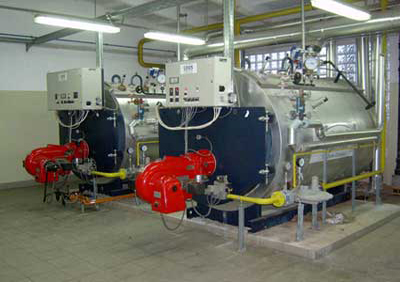
To ensure that such boiler systems are correctly maintained and operate at optimum efficiency it is essential that the correct boiler water conditions are maintained at all times. This can be achieved using carefully selected boiler water treatment chemicals. Accepta's technically advanced boiler water treatment chemicals have been scientifically formulated to improve the operation and maintenance of industrial boiler systems and steam generation plant by proactively managing the problems associated with the use of water including scale formation, metallic corrosion, boiler water carryover and sludge deposition. A boiler is used for generating steam. It does this by heating water to its boiling point, after which steam will evaporate from it. When you boil a kettle of water, you will shut off the fire or electric power when the water comes to a boil. Generation of steam is a continuous process. Once a boiler is generating steam, it may take quite a long while before it is stopped. When steam is evaporated from the water, new water has to be added in to replace the water given out. As more and more steam is evaporated, the water becomes more and more concentrated with salts and other impurities Even minute quantities of salt in the water will eventually become so concentrated as to form scales or deposits, because of its inverse solubility property .The deposits are usually calcium or magnesium salts. These scales are very damaging to the boiler because they interfere with the heat transfer and can lead to overheating and eventually, boiler rupture. Soft water is water that contains very little calcium or magnesium salts. They are used to feed the boilers. However, they tend to be acidic in nature. Acidic water tends to corrode. This is not good for the boiler. Corrosion can weaken the boiler. By treating the boiler water with chemicals, we can control the acidity of the water as well as the softness of the water. This will solve the problem with scales and corrosion, but it is not the ultimate cure-all. The boiler water will continue to become more and more concentrated as the steam evaporates. The next step to take is to remove the concentrated water and replenish it with fresh, soft water.